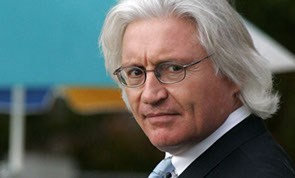5 minutes with... Thomas Mesereau
 Starting out, what did you expect from a career in law?
Starting out, what did you expect from a career in law?
One of the reasons I chose law school was to preserve career options. I did not know which area of law was best for me. I was hoping to find a particular niche where I could demonstrate passion and excellence. It took a while for me to focus on criminal defense. Previously, I had tried corporate law, civil litigation and criminal prosecution.
What do you consider to have been your big break?
Professionally, the Michael Jackson case was a big break for me. It was the most media-saturated case in world history. More accredited media covered the case than the American murder cases of O.J. Simpson and Scott Peterson combined.
What differences do you see in today's legal market compared to when you started?
Because of the troubled American economy, legal jobs are scarcer than when I graduated from law school. Additionally, American law school graduates are graduating with considerable debt. I attended a California state law school for $450 per semester. Today, law students in the California state system are spending approximately $40,000 per year to attend. However, because of technology, it has never been cheaper to open your own law office. When I graduated from law school, we assumed that you needed a physical law library, various assistants, etc, to practice law. Now, all of this can be accomplished online.
What achievement are you most proud of?
Let me begin by stating that everyone’s case is the most important to them. I do not consider one life to be any more valuable than another. I am particularly proud of the fact that I chose compassion, humanity and justice over money in my career. I made a very specific decision that most lawyers were primarily motivated by money and considerably unhappy. This was not enough for me. Many years ago, I devoted myself to defending the poor and oppressed at considerable financial expense to me. I am very proud of this decision.
“The Michael Jackson case was a big break for me. It was the most media-saturated case in world history.”
What do you consider your greatest failure or regret?
Philosophically, I believe that the good and bad in life are interconnected. You cannot look at a good experience in isolation from the disappointing ones. One of the keys to a fulfilling life is to learn from the failure, embarrassments and regrets. Conversely, failures, regrets, etc, are directly related to the victories, successes and happy moments. At this stage in my life, I would not change anything given my blessings and advantages. However, if I had to change anything, I would have worried less about who I am and where I belong at younger stages of my life.
What law would you want to change, abolish or create?
I would like to abolish the death penalty. It is applied in a very unjust, arbitrary fashion in America. Mistakes are made and innocent people are executed. To me, the death penalty is nothing more than 'legislated revenge'.
Who is your legal hero?
I have a number of legal heroes. They include Earl Rogers, Clarence Darrow, William Kuntsler, Thurgood Marshall and Johnnie Cochran.
What career would you have in your second life?
The same one I chose. If I were forced to choose something else, it would have to have a humanitarian element. Perhaps, I would be a social worker. I also have fantasies of being a solitary, successful novelist.
How would you like to be remembered?
I would like to be remembered as a compassionate, decent individual who made a positive difference in people’s lives.